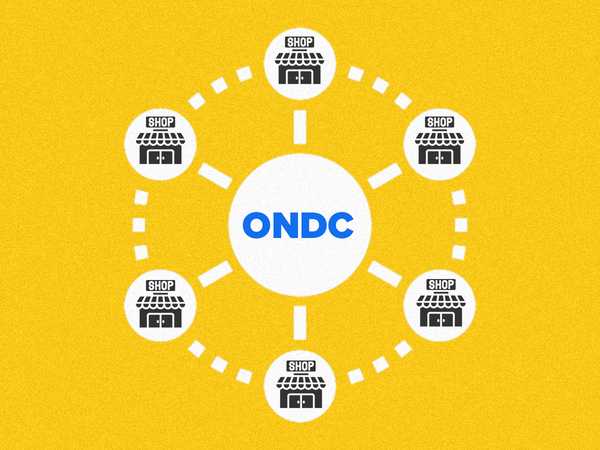Why your advertising (PPC) campaigns are failing
Here is a quick checklist of a bunch of small optimisation tricks that we learn and use within our clients PPC campaigns - Remember that the small change can make the biggest difference! Good luck!
1. Researching Keywords

PPC ads appear in Google (or other search engines) results, which means that specific keywords need to be targeted. The concept is very simple - What would someone type in, to find exactly what I offer? That is it! Now expand on it, digging deeper down every route and developing a keyword network.
Google Ads itself is equipped with its own keyword planner so take advantage of it! Aim for keywords that are relevant to your and meaningful to your business (both long tail and short). You can group your keywords together into a group (ad groups). Each ad group will consists of all the keywords targeted by a particular ad. It is important to not add every keyword under the sun and limit yourself (approximately 15-20 keywords is good). The more and more keywords you add, the less targeted your audience becomes.
2. Using Negative keywords

Negative keywords is an amazing little tool you can use within your campaign manager - Negative keywords essentially make sure your ad does NOT show for certain keywords.
A prime example of this would be a campaign which was set up advertising our Virtual Assistants services, the campaign focused on those who was searching for a VA to perform admin duties within their business, however we noticed that a certain longtail keyword was being picked up - “Virtual Assistant Hiring”. Obviously we did not want this, so the quick addition of the keyword “hiring” blocked out anybody who was looking for job opportunities (which was not the purpose of our campaign).
Negative keywords can be used in a variety of ways, you can exclude certain keywords you do not wish to relate to your brand etc (guides, free, discounted) etc.
3. Implement Tracking

How would you know if your campaign is successful if you were never measuring it? The best way to measure the success of your PPC campaign is to track how many conversions the campaign is producing. To do this is simple, put your tracking code on the page that displays after a purchase is made.
The tracking codes in which you generate can be applied in Google Analytics, which then allows you to track your site - you can access your code by going into your Google Analytics account and go through the following: Admin >Tracking info >Track code.
4. Extensive loading times

If you are running ads and the loading time of your website is poor you are literally throwing your money out of the window! Every 1-second delay is a 7% loss in conversions, this can build up fast and it's affecting your performance! Ensure your website performance is up to scratch
5. Bin underperforming keyword

Well, you don’t have to delete them, but at least pause them. If you see that certain keywords are not generating any conversions at all you should consider pausing them. You can decipher this on your own and you should take into account the variables in hand (how long has the ad been running, etc). If the keyword is showing low performance in comparison to others, it is most likely worth considering to pause it.
6. Adjusting your targeting settings

Defining your audience means better conversions! It's not about selling to the world, it's about selling to the people who need and are looking for you! Google ads come equipped with the needed tools to filter down your audience, with targeting features such as age, gender, location, etc to niche down your audience into the perfect audience.
If you are clear of your target audience, you do not want to be wasting resources on focusing on the wrong individuals.
7. Campaign Management is important

Don’t just run an ad and leave it hanging, it requires management. Your ads require consistent maintenance from everything from monitoring performance, analysation and optimisation, adjusting bids and so forth. When starting your ad campaigns it is a duty to monitor them, if not, you could be watching your marketing attempts turn into nothing.
8. Conclusion

I hope this short blog has helped you and maybe sent you on a path towards optimising your campaigns, if so, I only hope for great results - Everything within the blog is written for educational purposes. These are all tried and tested methods but the outcome of your advertising attempts are not the responsibility of Saint Financial Group.
Here is a quick checklist of a bunch of small optimisation tricks that we learn and use within our clients PPC campaigns - Remember that the small change can make the biggest difference! Good luck!
1. Researching Keywords

PPC ads appear in Google (or other search engines) results, which means that specific keywords need to be targeted. The concept is very simple - What would someone type in, to find exactly what I offer? That is it! Now expand on it, digging deeper down every route and developing a keyword network. Google Ads itself is equipped with its own keyword planner so take advantage of it! Aim for keywords that are relevant to your and meaningful to your business (both long tail and short). You can group your keywords together into a group (ad groups). Each ad group will consists of all the keywords targeted by a particular ad. It is important to not add every keyword under the sun and limit yourself (approximately 15-20 keywords is good). The more and more keywords you add, the less targeted your audience becomes.
2. Using Negative keywords

Negative keywords is an amazing little tool you can use within your campaign manager - Negative keywords essentially make sure your ad does NOT show for certain keywords. A prime example of this would be a campaign which was set up advertising our Virtual Assistants services, the campaign focused on those who was searching for a VA to perform admin duties within their business, however we noticed that a certain longtail keyword was being picked up - “Virtual Assistant Hiring”. Obviously we did not want this, so the quick addition of the keyword “hiring” blocked out anybody who was looking for job opportunities (which was not the purpose of our campaign). Negative keywords can be used in a variety of ways, you can exclude certain keywords you do not wish to relate to your brand etc (guides, free, discounted) etc.
3. Implement Tracking

How would you know if your campaign is successful if you were never measuring it? The best way to measure the success of your PPC campaign is to track how many conversions the campaign is producing. To do this is simple, put your tracking code on the page that displays after a purchase is made. The tracking codes in which you generate can be applied in Google Analytics, which then allows you to track your site - you can access your code by going into your Google Analytics account and go through the following: Admin >Tracking info >Track code.
4. Extensive loading times

If you are running ads and the loading time of your website is poor you are literally throwing your money out of the window! Every 1-second delay is a 7% loss in conversions, this can build up fast and it's affecting your performance! Ensure your website performance is up to scratch
5. Bin underperforming keyword

Well, you don’t have to delete them, but at least pause them. If you see that certain keywords are not generating any conversions at all you should consider pausing them. You can decipher this on your own and you should take into account the variables in hand (how long has the ad been running, etc). If the keyword is showing low performance in comparison to others, it is most likely worth considering to pause it.
6. Adjusting your targeting settings

Defining your audience means better conversions! It's not about selling to the world, it's about selling to the people who need and are looking for you! Google ads come equipped with the needed tools to filter down your audience, with targeting features such as age, gender, location, etc to niche down your audience into the perfect audience. If you are clear of your target audience, you do not want to be wasting resources on focusing on the wrong individuals.
7. Campaign Management is important

Don’t just run an ad and leave it hanging, it requires management. Your ads require consistent maintenance from everything from monitoring performance, analysation and optimisation, adjusting bids and so forth. When starting your ad campaigns it is a duty to monitor them, if not, you could be watching your marketing attempts turn into nothing.
8. Conclusion

I hope this short blog has helped you and maybe sent you on a path towards optimising your campaigns, if so, I only hope for great results - Everything within the blog is written for educational purposes. These are all tried and tested methods but the outcome of your advertising attempts are not the responsibility of Saint Financial Group.

















Login to your account or create a new account to post comments!